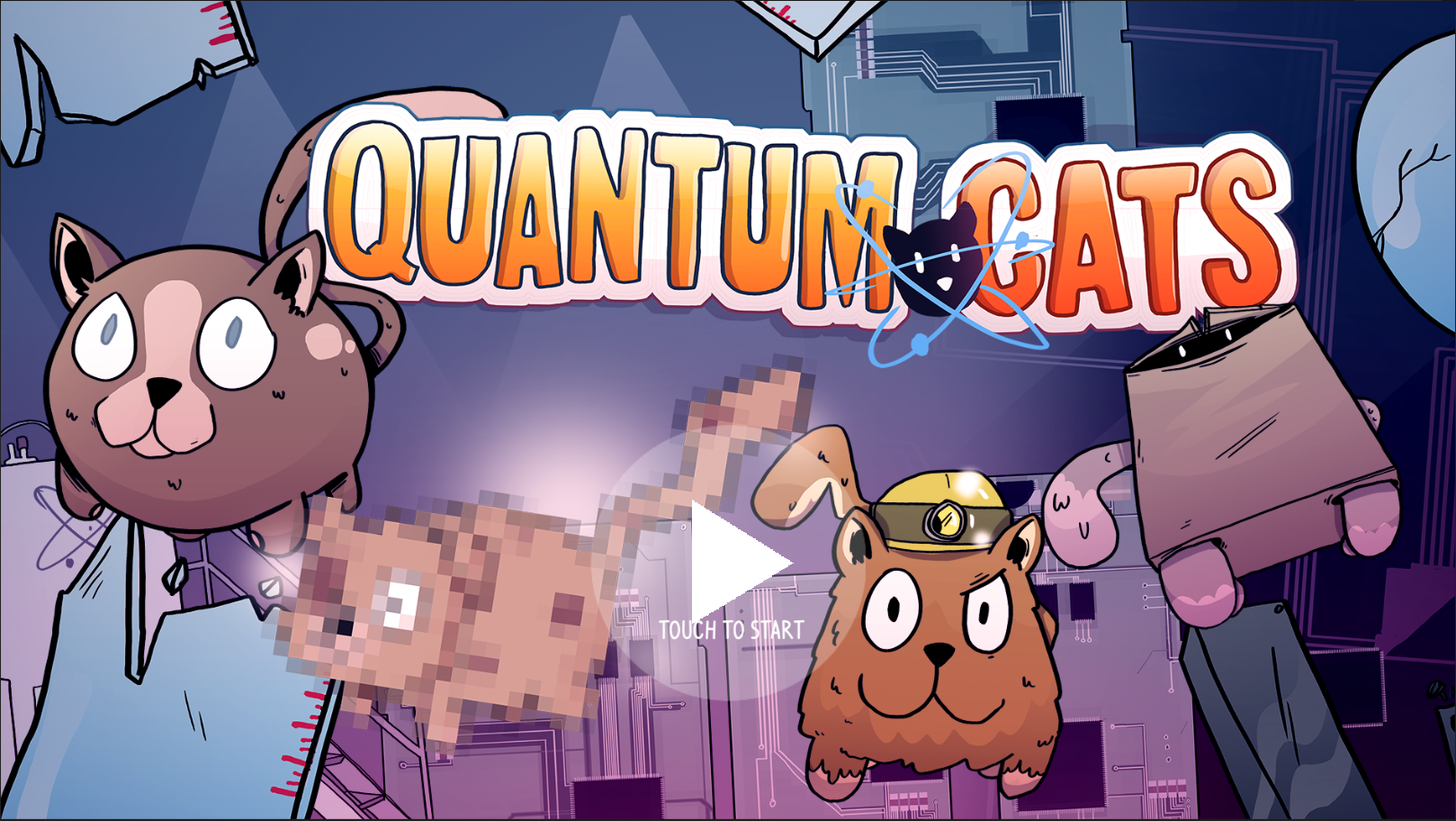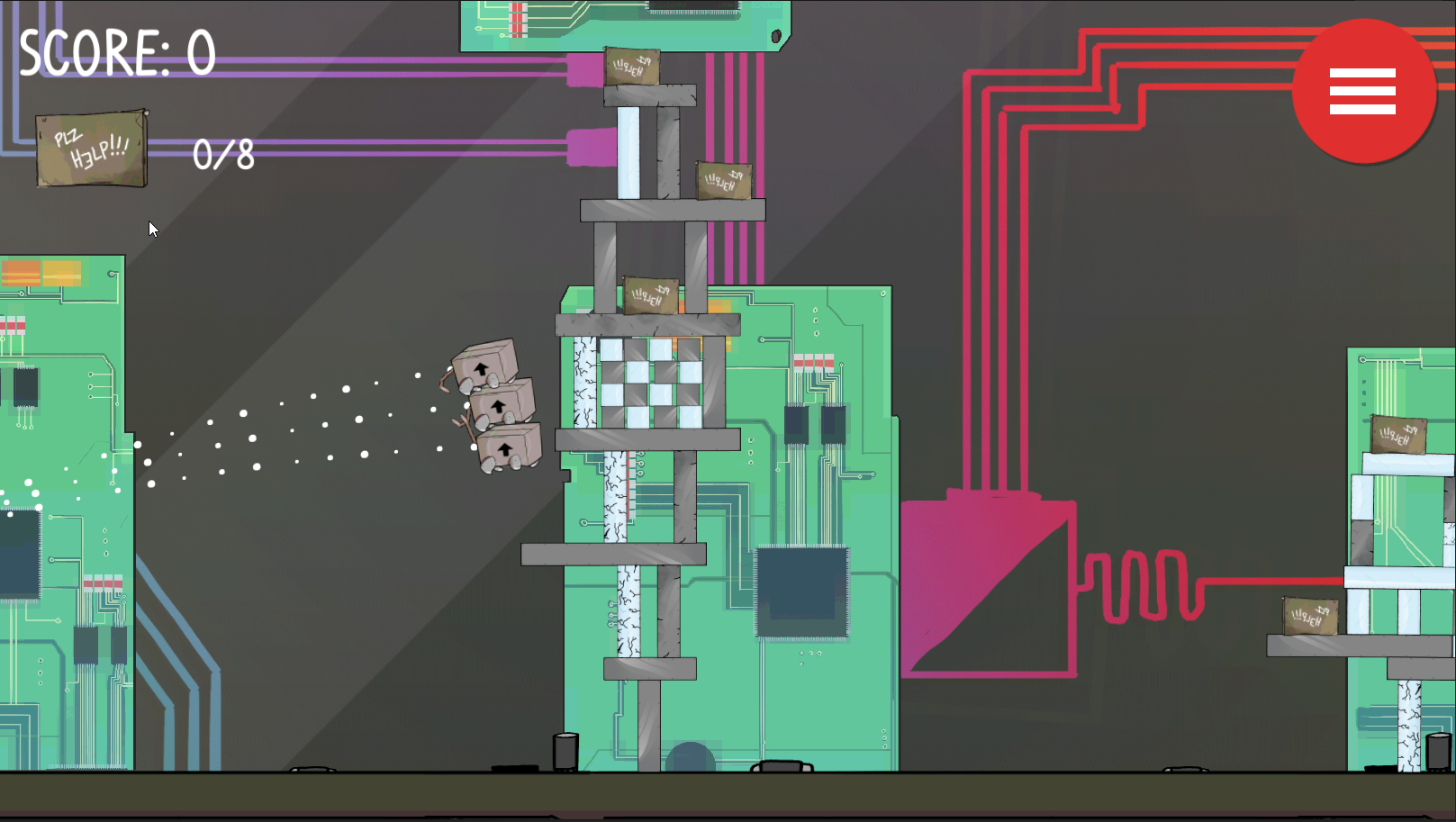A new Angry Birds-style game is set to help launch a new understanding of quantum science.
Some find the concepts of quantum science confusing or unintuitive. Einstein even called quantum effects “spooky." To help people better understand some of the core concepts of quantum science, the Institute for Quantum Computing (IQC) at the University of Waterloo is launching a game – the Quantum Cats.

Quantum Cats game
The game uses cats with the behaviours of four key quantum terms – classical, superposition, tunnelling and uncertainty – to save the kittens trapped in boxes in the game’s world. Players launch the various cats and use their quantum behaviours to break open the boxes and save the kittens.
Quantum Cats was developed in partnership with the University of Waterloo Games Institute. Students and faculty members from across campus collaborated in the ideation, the science and development of the game.
Quantum technologies are emerging from research labs around the world faster and faster. From highly secure communications to ultra-sensitive devices to powerful quantum computers, these technologies promise to transform how we live, work and play.
“This game is a great way for people to become familiar with concepts of quantum science,” said Tobi Day-Hamilton, associate director, communications and strategic initiatives at IQC. “We wanted to take science that people think is hard and make it fun. Working with the Games Institute, we were able to create something that exceeded our expectations.”
Quantum Cats is available for download from the Google Play app store now and will be available soon in iTunes and BlackBerry World.

Schrö the Superposition Cat
Four cats are introduced through the game:
- Classy – a classic cat. She acts like you would expect – you know where she’s going and where she’s been. She follows the laws of Newton and Galileo.
- Schrö – You never know if Schrö is in the box or if he’s not. He has the ability to be in multiple states at the same time. He could be here, he could be there or both!
- Digger – Watch this cat! He will suddenly appear on the other side of a barrier, even when he doesn’t have the energy to go over it or break it down.
- Fuzzy – You are never certain where you’ll find this cat. There’s a fundamental limit on how much information you can know about her.
"Collaborating with IQC and their students on this game was ideal," says Neil Randall, Director of Waterloo's Games Institute. "IQC brought the scientific knowledge and we brought the gaming knowledge. Together, we created a multi-disciplinary team that came up with a game that shares a few complex ideas with the world. The result demonstrates the effectiveness of fun games as a teaching tool, something The Games Institute is committed to."
The Institute for Quantum Computing is a world-class research centre in quantum information science and technology at the University of Waterloo. Top experimentalists and theorists are making powerful new advances at IQC, deepening the understanding of quantum information and accelerating the development of quantum technology with applications from quantum computing to quantum sensors, unbreakable cryptography to new quantum materials.
Since its founding in 2002, IQC has become an engine driving the creation of quantum information science and technology. IQC is sparking commercialization initiatives that will benefit society for generations to come, transforming the way we work, live and play, and establishing Waterloo as Canada’s Quantum Valley.
ABOUT THE UNIVERSITY OF WATERLOO
In just half a century, the University of Waterloo, located at the heart of Canada's technology hub, has become one of Canada's leading comprehensive universities with 35,000 full- and part-time students in undergraduate and graduate programs. A globally focused institution, celebrated as Canada’s most innovative university for 23 consecutive years, Waterloo is home to the world's largest post-secondary co-operative education program and encourages enterprising partnerships in learning, research and discovery. In the next decade, the university is committed to building a better future for Canada and the world by championing innovation and collaboration to create solutions relevant to the needs of today and tomorrow. For more information about Waterloo, please visit uwaterloo.ca.
MEDIA CONTACT | Nick Manning
519-888-4451 | cell 226-929-7627 | @uwaterloonews | uwaterloo.ca/news
Attention broadcasters: Waterloo has facilities to provide broadcast quality audio and video feeds with a double-ender studio. Please contact us for more information.